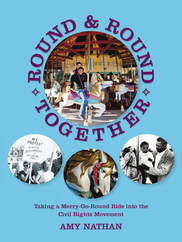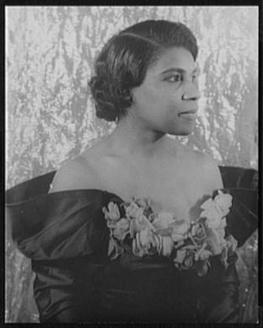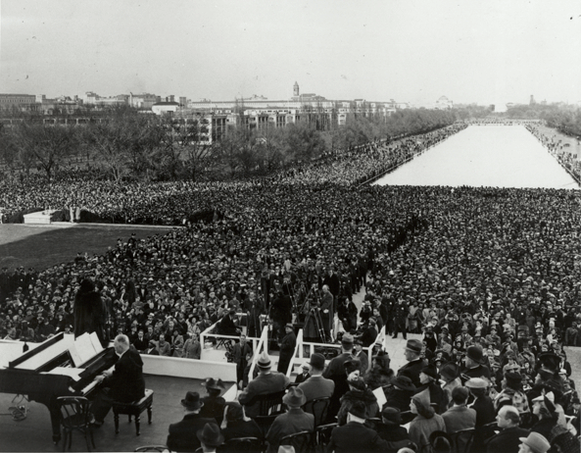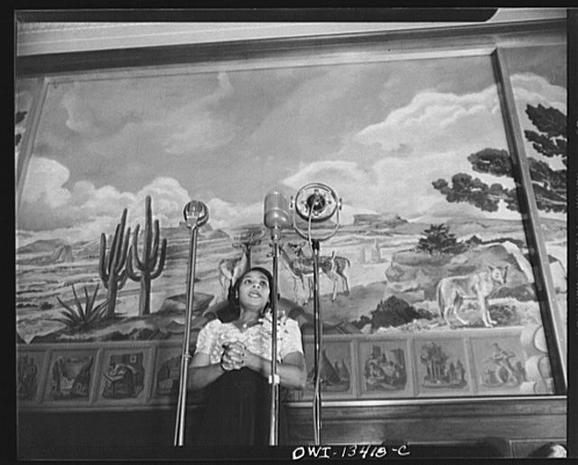|
In 1963, at a ceremony in Washington, D.C., President Lyndon Johnson awarded singer Marian Anderson the Presidential Medal of Freedom, the highest honor a president can give to a civilian (someone not in the military). He explained why this African American musician was being honored: “Artist and citizen, she has ennobled her race and her country, while her voice has enthralled the world.” Twenty-four years earlier, however, some in Washington weren’t interested in honoring her but instead treated her unfairly. By then, she had given wonderful concerts of classical music in Europe and the United States, including at the White House. But in 1939, when a local university tried to have her perform at Constitution Hall, Washington’s concert hall, the managers of Constitution Hall wouldn’t let her, just because of the color of her skin. Eleanor Roosevelt, President Franklin Roosevelt’s wife, was upset by this example of discrimination against African Americans and arranged for Marian Anderson to perform that spring at the Lincoln Memorial. More than 75,000 people filled the area in front of the memorial to hear Marian Anderson sing. Thousands more around the country listened on radio to a live broadcast of the performance. She started by singing “America,” then sang some classical pieces, and ended with spirituals, including “Nobody Knows the Trouble I’ve Seen.” Newspapers and magazines wrote rave reviews, which let thousands more people learn about the dignified and courageous way she had triumphed over discrimination. Four years later, in 1943, she was at last invited to perform at Constitution Hall. Did this end unfair treatment for this singer? Not exactly. In 1953, Marian Anderson was again denied permission to perform at a concert hall, this time by the Lyric Theater in Baltimore, Maryland. Luckily, this city’s music- and freedom-loving citizens came to her defense. Some wrote letters to newspapers complaining about “this insult to a great American singer.” Others threatened never to go to that concert hall again. Hundreds complained directly to the Lyric’s managers. Finally, Maryland’s commission on interracial relations persuaded the Lyric’s owners to let Marion Anderson perform there on January 8, 1954. The hall was filled to overflowing with her enthusiastic fans. Ten years later, racial discrimination in concert halls finally became illegal. The Civil Rights Act of 1964 outlawed discrimination based on race, religion, or national origin at any place that serves the public, including concert halls, theaters, stadiums, restaurants, hotels, and anywhere else. Source notes for this Minute may be found be clicking here.  Amy Nathan is the author of Round and Round Together: Taking a Merry-Go-Round Ride into the Civil Rights Movement, which tells about many little-known and yet important stories in civil rights history, including the story of Marian Anderson being the first African American to perform at Baltimore’s Lyric Theater in January 1954, and also the story about the merry-go-round that’s located not far from where Marian Anderson gave her famous 1939 concert at the Lincoln Memorial in Washington. For more information, click here.
0 Comments
Leave a Reply. |
Traffic for our summer Minutes are ticking up.. |







 RSS Feed
RSS Feed
